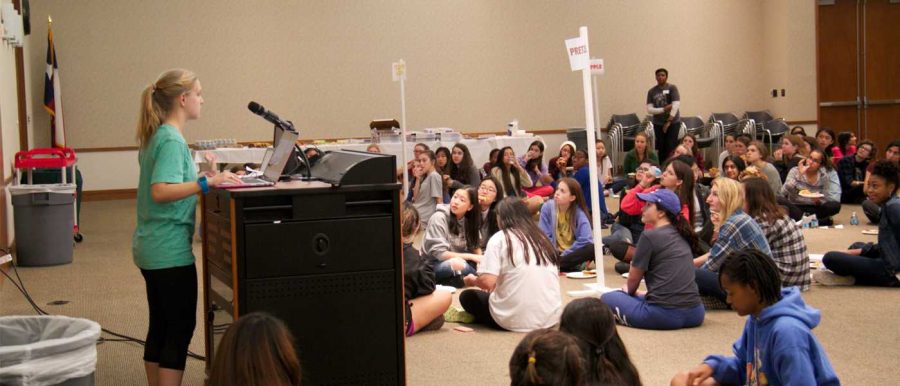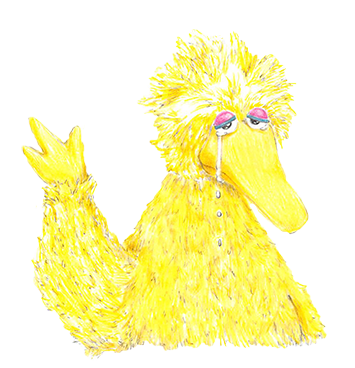The room was packed with students and teachers, all eager to share their feelings about hidden biases as well as to chow down some pizza and cookies.
The first Student Diversity Board forum was on Friday in Hicks Meeting Room where Upper School students talked about “blind spots and the hidden biases of good people.”
Tresa Wilson, SDB sponsor and Hockaday’s director of inclusion, said that she thought the forum was a successful. SDB Chair Hallie Gu agreed, “I think it went well. It’s really a productive conversation, everyone has something to share and they talked about personal experience, which is what we wanted in the first place.”
The SDB introduced a new activity in the beginning of the forum where students went around the room answering broad questions about the topic. The purpose of this was to get them in the mindset of the topic at hand. Some of the questions included: “True or False: Sexism, racism, ageism, xenophobia, homophobia and prejudices towards those with disabilities all have basically the same dynamics?” and “Yes or No: Are overtly prejudiced people just as biased as those who hold implicit biases but don’t act on them?” Later on during the forum, the board shared the results with the larger group.
Another new aspect of the forum was the topic choice.
“In past forums, we focused on just cultural intelligence. This year, we’re focusing on cultural competency,” Wilson said. Cultural competency includes four main subtopics: self awareness, skill building, cultural intelligence and countering oppression through inclusion.
Junior Elizabeth Zhou attended the SDB forum and appreciated the format change.
“I think it was really interesting how this topic wasn’t just one of those big eight identifiers,” Zhou said. “I like how they changed up the usual format by adding those posters so you questioned your own opinions.”
The change in topic was a main focus of the board this year.
“In the past, we have just talked about things that aren’t immediately relevant to Hockaday. Now we want to focus back on our community because we have our own issues and communication skills. Awareness of biases is really important in building an inclusive community. I thought changing the format and tweaking the topic would do that,” Gu said.
Junior Jessica Wang also attended the forum and said that it was interesting when they all finally got to come together to talk about something.
“I thought I was the only one with inherent biases, so it’s nice to hear other people and to be like acknowledged that you’re not the only one,” she said.














